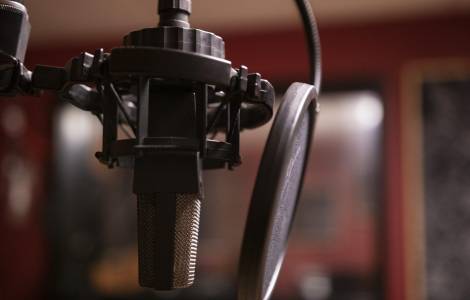
Brasilia (Agenzia Fides) - The Radio sector of Signis Brasil, in collaboration with the Episcopal Commission for communication of the National Episcopal Conference (CNBB), has published partial data from the first census of Catholic radio stations in the country (see Fides, 15/6/2022). As of March 8, 139 radio stations had responded, of which 27 still operate on the AM frequency and are in the process of migrating to FM. Ninety-eight other radio stations are on FM. Fourteen web radios also responded to the survey.
Of the 139 stations that have taken part in the census so far, 77 are run by archdioceses and dioceses, 26 by religious congregations, 12 by parishes and 24 by entrepreneurs or autonomous foundations.
"We know from experience that the numbers are higher, but we are still awaiting responses from some parts of the country," said Felipe Zangari, coordinator of Signis Radio.
"These partial census data, continued Mr. Zangari, reveal very important things: first of all, the strength of the dioceses, then the strong support of religious congregations who also support communication projects in various regions of the country, and the need to work together, in communion with the Church, bearing witness to the Church.
Here is the geographical distribution of the 139 stations. Southern region: 27 stations (11 in Paraná, 7 in Santa Catarina and 9 in Rio Grande do Sul). Southeast region: 46 stations (25 in São Paulo, 16 in Minas Gerais, 13 in Rio de Janeiro and 2 in Espírito Santo). Center-West Region: 23 stations (17 in Goiás, 2 in Mato Grosso, 4 in Mato Grosso do Sul). North Region: 12 stations (1 in Acri, 3 in Amazonas, 4 in Pará, 2 in Rondônia, 1 in Roraima and 1 in Tocantins). Northeast Region: 31 stations (1 in Maranhão, 1 in Piauí, 10 in Ceará, 4 in Rio Grande do Norte, 6 in Pernambuco, 2 in Alagoas and 7 in Bahia).
The research is a partnership between the National Conference of Bishops of Brazil (CNBB), the Catholic Radio Network (RCR) and Signis Brasil, and concerns Catholic radio stations, whether commercial, educational or community. In addition to understanding how Catholic radios are organized, where they are and what they do, the study aims to provide an overview of the real situation, common and particular challenges, as well as the possibility of finding ways to support each other. (SL) (Agenzia Fides, 18/3/2023)